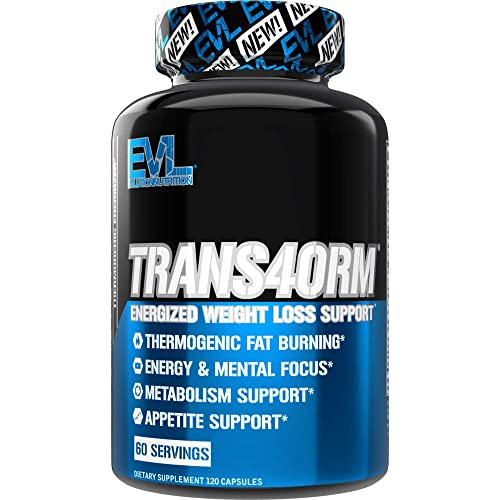Weight loss is a common goal for many people, and with the abundance of weight loss supplements in the market, it can be overwhelming to choose the right one. To make an informed decision, it's important to understand the science behind these supplements and how they work.
1. Appetite Suppressants:
One popular type of weight loss supplement is an appetite suppressant. These supplements work by suppressing your appetite, making you feel fuller for longer and reducing your overall calorie intake. They often contain ingredients like fiber, caffeine, or appetite-regulating hormones that help control hunger cues. By curbing your cravings and reducing food intake, these supplements can aid in weight loss.
2. Fat Burners:
Fat burners are another widely used type of weight loss supplement. These supplements aim to increase your metabolism, leading to more calories burned throughout the day. They often contain ingredients like caffeine, green tea extract, or thermogenic compounds that stimulate the body's metabolic rate. While fat burners can potentially enhance weight loss, it's crucial to combine their use with a balanced diet and regular exercise for optimal results.
3. Carb Blockers:
Carbohydrate blockers are designed to inhibit the absorption of carbohydrates in the body. They contain compounds that interfere with the enzymes responsible for breaking down carbs, preventing them from being absorbed as calories. By reducing the number of carbs that are digested and absorbed, these supplements can help lower calorie intake, ultimately aiding in weight loss.
4. Thermogenics:
Thermogenic weight loss supplements work by increasing the body's core temperature, which in turn boosts metabolism. When the body temperature rises, more calories are burned as heat energy. Thermogenic supplements often contain stimulants such as caffeine or capsaicin, the compound responsible for the spicy sensation in chili peppers. These ingredients can help increase calorie burn and promote weight loss.
5. Metabolism Boosters:
Metabolism boosters are supplements that aim to optimize the body's metabolic processes. They often contain vitamins, minerals, or natural extracts that support cellular functions and energy production. By enhancing metabolic efficiency, these supplements can potentially increase calorie burn and help with weight loss efforts. However, it's important to note that a well-rounded approach including exercise and a healthy diet is necessary for sustainable weight loss.
While weight loss supplements can be a helpful addition to a weight loss plan, it's vital to remember that they are not magic pills. Consistency with a healthy lifestyle, including proper nutrition and physical activity, is key to achieving and maintaining weight loss goals. Before introducing any new supplements into your routine, it's always advisable to consult with a healthcare professional to ensure they are suitable for your specific needs and well-being.
Evaluating the Effectiveness of Weight Loss Supplements: Separating Fact from Fiction
When it comes to achieving weight loss goals, many individuals turn to weight loss supplements to help accelerate the process. However, the effectiveness of these supplements is often a matter of debate and their claims can sometimes be misleading or exaggerated. Before incorporating any weight loss supplement into your routine, it is essential to separate fact from fiction and make an informed decision about their potential benefits.
Understanding Weight Loss Supplements
Weight loss supplements are dietary formulas designed to support weight management efforts. They typically contain a combination of vitamins, minerals, herbs, and other substances that claim to enhance metabolism, suppress appetite, or increase fat burning. While some supplements may have scientific evidence to support their claims, others rely on testimonies rather than rigorous research.
Evaluating the Evidence
Before considering a weight loss supplement, it is crucial to assess the evidence backing its efficacy. Look for supplements that provide well-designed clinical trials or peer-reviewed research studies showcasing their effects on weight loss. Keep in mind that individual results may vary, and studies may not always show significant weight loss outcomes. Always be skeptical of supplements that make exaggerated claims or promise unrealistic results.
Consulting Expert Advice
Seeking guidance from experts such as registered dietitians or healthcare professionals can provide valuable insights when evaluating weight loss supplements. These professionals can help analyze product labels, review scientific literature, and guide you towards evidence-based choices. Remember that their expertise extends beyond internet reviews or anecdotal experiences, offering reliable and personalized advice.
Considering Safety
While weight loss supplements may seem like a convenient solution, it is crucial to prioritize safety. Some supplements may contain hidden ingredients, stimulants, or potential allergens that could pose risks to your health. Scan the product labels for any known side effects or warnings. Additionally, inform your healthcare provider about any weight loss supplements you plan to use to ensure they do not interact adversely with any pre-existing medical conditions or medications.
Supporting a Healthy Lifestyle
Weight loss supplements should never be viewed as a magic pill or a substitute for a healthy lifestyle. They are intended to complement a balanced diet, regular exercise, and other sustainable habits. Focusing on overall wellness, including staying hydrated, getting adequate sleep, and managing stress, is essential for long-term weight management.
Conclusion
In conclusion, when diving into the world of weight loss supplements, it is essential to separate fact from fiction. Evaluating the efficacy, evidence, consulting experts, prioritizing safety, and maintaining a healthy lifestyle are all crucial steps to make an informed decision. Remember, sustainable weight loss is achieved through a holistic approach combining healthy habits with evidence-based strategies.
Choosing the Right Weight Loss Supplement: A Comprehensive Guide for Consumers
Weight loss can be a challenging journey for many individuals. With so many options available in the market, it can be overwhelming to choose the right weight loss supplement that suits your needs. In this comprehensive guide, we will provide you with valuable insights and tips to help you make an informed decision.
1. Research and Understand Your Goals
Before diving into the world of weight loss supplements, it is crucial to have a clear understanding of your goals. Determine whether you want to suppress your appetite, boost your metabolism, increase energy levels, or a combination of these factors. Additionally, research the potential benefits and risks associated with the different types of weight loss supplements available.
2. Consult a Healthcare Professional
Prior to starting any weight loss supplement, consult with your healthcare professional. They can evaluate your overall health, any underlying conditions, and provide personalized advice on the most suitable supplement for you. Their expertise will help minimize any potential risks or negative interactions with other medications you may be taking.
3. Read the Ingredients and Label
It is essential to carefully read the ingredients and label of any weight loss supplement you consider. Look for natural and proven ingredients such as green tea extract, caffeine, or conjugated linoleic acid (CLA). Avoid supplements with excessive fillers, additives, or artificial ingredients that may be ineffective or have adverse effects.
4. Assess Safety and Quality
Always choose weight loss supplements that have undergone third-party testing to ensure safety and quality. Look for certifications such as Good Manufacturing Practices (GMP) or NSF International. These certifications guarantee that the product has been manufactured in a regulated facility and meets the required standards.
5. Consider Reviews and User Experiences
While considering a weight loss supplement, take the time to read reviews and experiences of other users. Their testimonials can provide valuable insights into the effectiveness, side effects, and overall satisfaction with the product. However, keep in mind that everyone's body may react differently, so it is essential to gather multiple perspectives.
6. Beware of False Claims
Stay cautious of weight loss supplements that make unrealistic claims. If a product promises rapid weight loss without any effort or guarantees drastic results, it is likely too good to be true. Always remember that sustainable weight loss requires a combination of a healthy diet, regular exercise, and a well-balanced lifestyle.
7. Price and Value for Money
Consider the price and value for money when choosing a weight loss supplement. Compare prices across different brands and products, keeping in mind the quality and quantity offered. It is important to invest in a supplement that aligns with your budget without compromising on safety and efficacy.
8. Start Slow and Monitor Effects
Once you have chosen a weight loss supplement, it is advisable to start with a lower dosage. This allows your body to adjust and minimizes the risk of any potential side effects. Keep a record of your progress and monitor the effects on your weight, energy levels, and overall well-being. If you experience any adverse effects, discontinue use and consult with your healthcare professional.
Remember that weight loss supplements are not magic pills and should complement a healthy lifestyle. Always prioritize a balanced diet, regular exercise, and adequate sleep for long-term weight management. With the right knowledge and guidance, you can make an informed decision and find a weight loss supplement that suits your needs.







